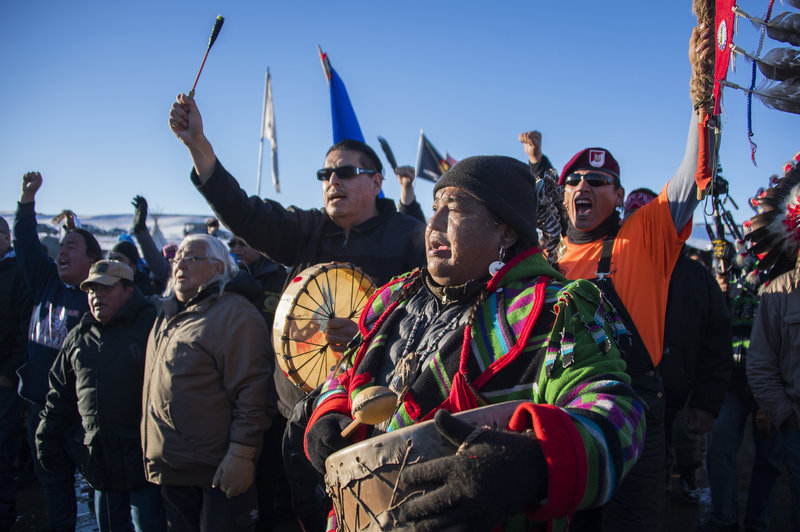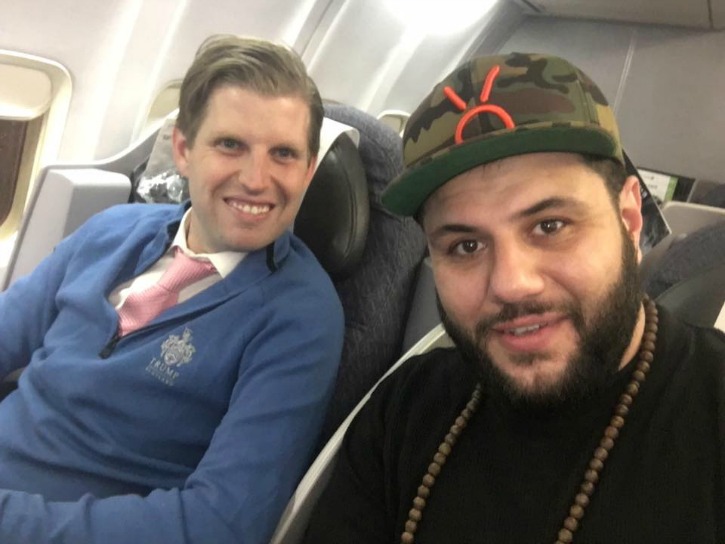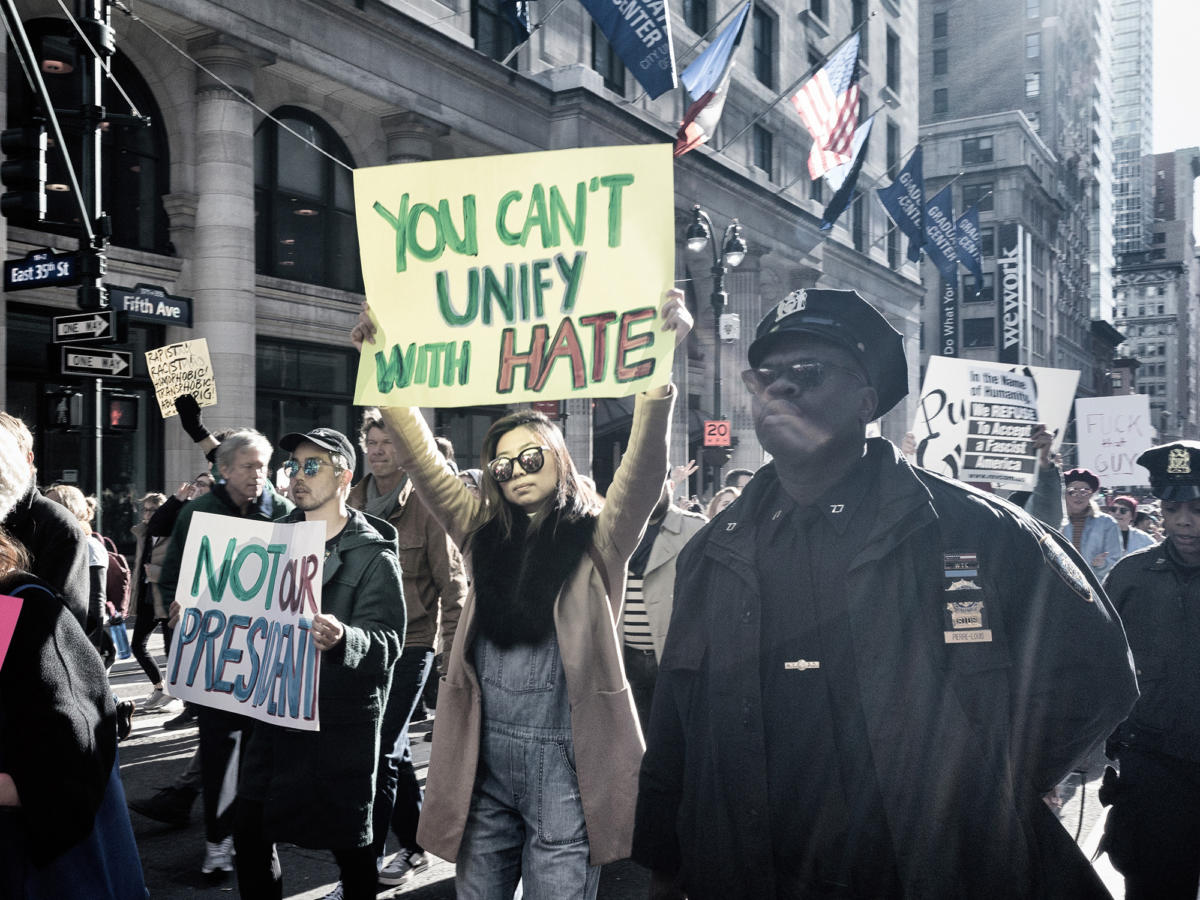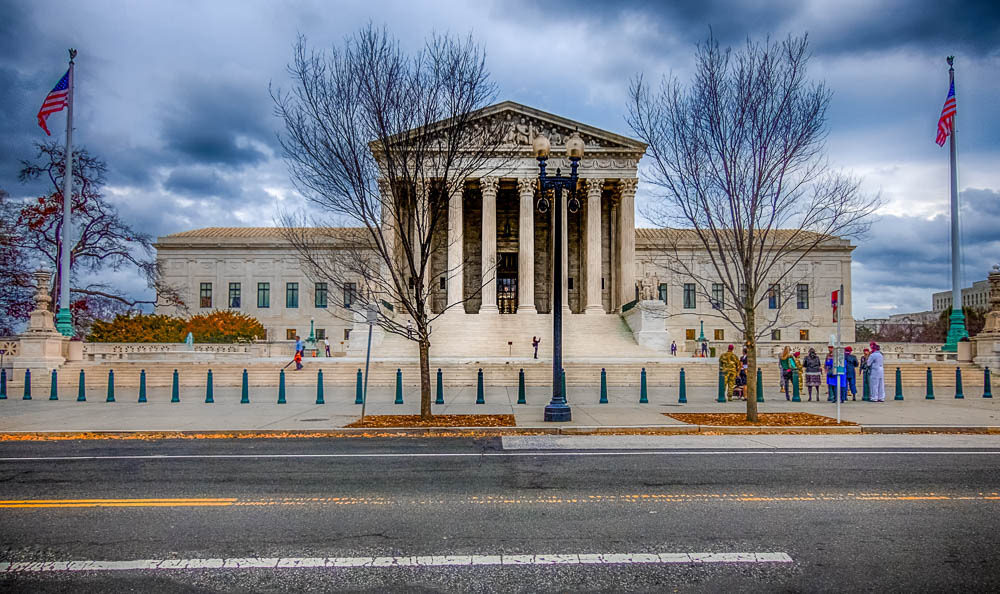With all the stories on the Internet it can be difficult to always stay in the know. To help, we’ve searched the web for interesting pieces of news, videos and tips to help you start off your week on the right foot.
1. Army Corps Denies Easement for Dakota Access Pipeline

Protesters celebrate at Oceti Sakowin Camp earlier Sunday. The Army Corps of Engineers notified the Standing Rock Sioux that the current route for the Dakota Access Pipeline will be denied. Jim Watson/AFP/Getty Images
According to NPR The Army Corps of Engineers has deiced to “deny a permit for the construction of a key section of the Dakota Access Pipeline.”
The decision will halt the construction of the 1,172-mile pipeline which is only about a half a mile away from the Standing Rock Sioux Reservation.
Over the last few months, thousands of protestors from around the country have gathered with the Standing Rock Sioux tribe to protest the construction of the pipeline which members of the Standing Rock Sioux tribe said would poison their water supply and harm their land.
“Our prayers have been answered,” National Congress of American Indians President Brian Cladoosby said in a statement. “This isn’t over, but it is enormously good news. All tribal peoples have prayed from the beginning for a peaceful solution, and this puts us back on track.”
NPR reported that Jo-Ellen Darcy, the Army’s assistant secretary for civil works, said “after talking with tribal officials and hearing their concerns that the pipeline could affect the drinking water, it became ‘clear that there’s more work to do.'”
“The best way to complete that work responsibly and expeditiously is to explore alternate routes for the pipeline crossing,” Darcy said.
[tweetthis]”This isn’t over, but it is enormously good news. All tribal peoples have prayed from the beginning for a peaceful solution, and this puts us back on track.”[/tweetthis]
2. Can Television Be Fair To Muslims?

Anna Parini
The New York Times writer Melena Ryzik discusses, with the help of writers and show runners from hits like “24” and “Quantico,” whether or not television can truly be far to the diverse and complex Muslim American community.
“It has never been easy to put a Muslim character on American screens,” Ryzik writes. “Even in this TV renaissance, most characters are on shows that rely on terrorism — or at least, terrorist-adjacent — story lines. Other kinds of Muslim characters are woefully absent across the dial. Could that change now, after a divisive presidential campaign that included vows by Donald J. Trump to stop Islamic immigration? Or will it be more difficult than ever?”
[tweetthis]Show runners and writers from hits like “24” and “Quantico” discuss whether to not televisions can truly be far to the diversity and complexity of the Muslim American community.[/tweetthis]
3. Muslim comedian sits next to Eric Trump on trans-Atlantic flight

Facebook/Mohammed Amer
Last Thursday Mo Amer, an Arab American stand-up comedian, took to Instagram to share an experience of comedic gold when he found himself sitting next to Eric Trump on a flight to Scotland.
Amer, according to CNN was on his way to a comedy tour. His Instagram post shared with his almost 4,000 followers detailed the conversation between the two.
“Hey guys heading to Scotland to start the U.K. Tour and I am ‘randomly’ chosen to sit next to none other than Eric Trump,” his caption reads. “Good news guys Muslims will not have to check in and get IDs. That’s what I was told. I will be asking him a lot of questions on this trip to Glasgow, Scotland. Sometimes God just sends you the material. #Merica#UKTour #HumanAppeal#ThisisNotAnEndorsement#Trump2016ComedyTour”
[tweetthis]Arab American comedian Mo Amer finds himself seated next to none other than Eric Trump on a flight to Scotland.[/tweetthis]
4. Now Is The Time To Talk About What We Are Actually Talking About

In the wake of the election, we must resist the slightest extension in the boundaries of what is right and just.
Photograph By Livio Mancini / Redux
Feminist, author and all around badass Chimamanda Ngozi Adichie recently wrote a piece for The New Yorker about the necessity for peaceful protest and conversation now that the 2016 elections have come to a close.
“Now is the time to resist the slightest extension in the boundaries of what is right and just,” she writes. “Now is the time to speak up and to wear as a badge of honor the opprobrium of bigots. Now is the time to confront the weak core at the heart of America’s addiction to optimism; it allows too little room for resilience, and too much for fragility. Hazy visions of “healing” and “not becoming the hate we hate” sound dangerously like appeasement. The responsibility to forge unity belongs not to the denigrated but to the denigrators. The premise for empathy has to be equal humanity; it is an injustice to demand that the maligned identify with those who question their humanity.”
[tweetthis]”Now is the time to talk about what we are actually talking about.”[/tweetthis]
5. How Muslims Defined American Cool

The Muslim rap artist Mos Def, who is also known as Yasiin Bey, performs in 2009. Mario Anzuoni / Reuters
The Atlantic staff writer, Emma Green talks with Purdue University professor and author of the book Muslim Cool, Su’ad Abdul Khabeer, about her work with “young Muslims, largely in America, who are interested in art, fashion, and activism—and think about all of these things through the lens of hip hop.”
Green writes that while Khabeer, “studied people from a variety of ethnic and national backgrounds, she focuses on the intersections between hip-hop culture, black culture, and Islam, arguing that all of these cultures define what is ‘cool’ in the United States.”
“Hip hop is the soundtrack to my life,” Khabeer writes. “Growing up in Brooklyn and particularly being a teenager during the golden era of hip hop made my connection with it even more meaningful. I was black and Muslim … and the music and culture of hip hop were replete with Islamic references and pro-black and pan-African messages.”
[tweetthis]How Muslims defined what it means to be “cool” in America.[/tweetthis]
[tweetthis]altM’s weekly roundup of news[/tweetthis]
This list was curated by Kaitlin Montgomery, altM News Editor



